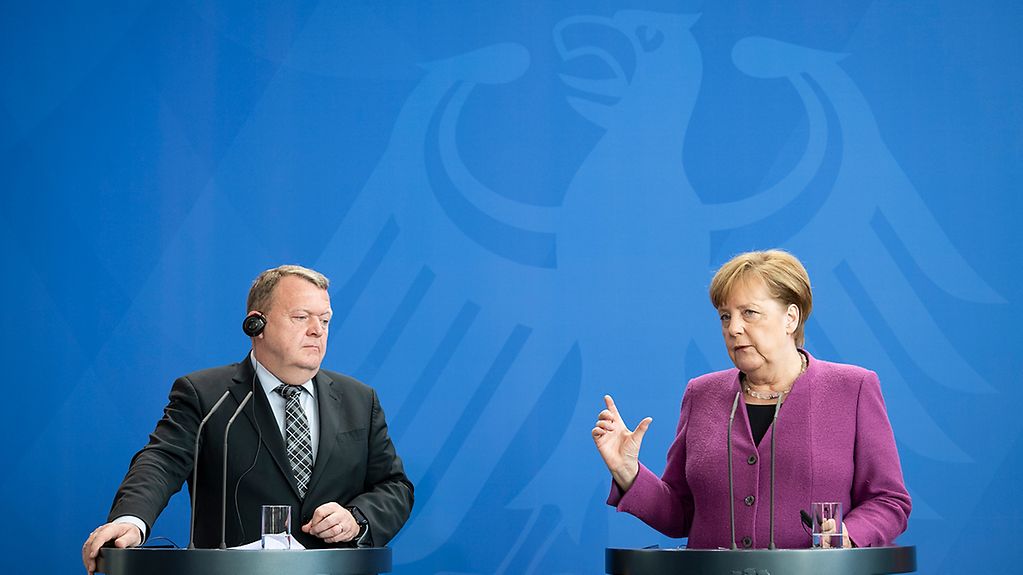Angela Merkel meets with Denmark's Prime Minister
During the visit of Danish Prime Minister Lars Løkke Rasmussen, Chancellor Angela Merkel welcomed the common positions and interests of Germany and Denmark.
1 min reading time

European issues were top of the agenda when the Chancellor met with Lars Løkke Rasmussen
Photo: Bundesregierung/Kugler
The international situation dominated talks between the two leaders. The situation is tense, said Angela Merkel, in view of recent developments in Syria. "Germany condemns the use of chemical weapons and there are many indications that the Syrian regime has used weapons of this sort."
Her talks with Lars Løkke Rasmussen also covered the construction of the "Nord Stream" gas pipeline. The two sides agree on the economic important of the project, said Angela Merkel, and on the fact that Ukraine must continue to play a role as a transit nation for gas.
Other items on the agenda when the Chancellor and the Prime Minister met were the European agenda and migration-related issues. With respect to the integration of refugees, the Chancellor said she saw "interesting and exciting approaches" in Denmark. The two countries intend to continue their dialogue and to learn from one another, particularly in terms of integration on the labour market, she added.
There is also common ground in the field of financial policy. The two countries are net contributors to the EU, and intend to coordinate their action closely with regard to the multi-year financial framework. But first they need the proposals of the Commission and the Structural Funds Regulation, explained Angela Merkel.
The Structural Funds Regulation serves to balance differences in the development status of different regions and to help disadvantaged areas catch up, with a view to strengthening the economic and territorial cohesion of the European Union.